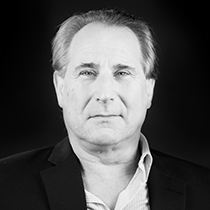“Values-based” Estate Planning
[vc_row][vc_column][vc_column_text]
There are many facets of estate planning.
Certainly, it’s important to craft a will that delineates how the fruits of years of hard work will be distributed to your loved ones—fairly and harmoniously. And, of course, crafting strategies that will maximize what you pass on at the minimum tax cost is an important goal.
Still, it’s not all about who gets what. Nor is savvy tax management the “be all and end all” of estate planning. In sum, says Scott C. Fithian, author of Values-Based Estate Planning: A Step-By-Step Approach to Wealth Transfer for Professional Advisors (John Wiley & Sons, 2000), “it’s putting vision, values and goals before techniques, products and tools.”
Transferring your personal values and ideals is likely to be an important part of the legacy that you want to leave behind. In other words, what you want your children and grandchildren to inherit is more than stocks and bonds, but the beliefs that you want them to cherish and the goals for which you wish them to strive—recognition of one’s heritage; respect for family traditions; the need to contribute to the community and the world at large.
Establishing your financial philosophy
Developing a financial philosophy (or as Fithian calls it, a “mission statement”) is an effective way to identify your needs and desires and to translate them into an estate plan. As Attorney Wendy S. Goffe of the law firm of Graham & Dunn in Seattle, Washington, explains it, this philosophy or mission statement is developed by considering several aspects of your financial life. For instance, it’s important to determine what resources you will need to maintain financial independence during your lifetime and to decide on the appropriate legacies for your heirs.
In addition, you need to choose how to distribute your “social capital.” Fithian defines the term as either the tax that you will pay on your assets or the charitable donations that you will make. It represents the part of your wealth that neither goes to you nor passes to your beneficiaries.
By sifting through your thoughts and motivations with regard to these three elements—financial independence, legacies and social capital—you will be able to articulate clearly the values upon which your estate plan will rest. For instance, if you recognize that you have a strong desire to maximize your charitable gifts, you ultimately may decide to reduce the size of the legacies to your heirs. Or if your loved ones stand first and foremost in your planning, the amount of tax that you pay or donations that you make will be much less of a concern.
Imparting your value
Setting aside the resources for a comfortable life is a matter of projections and dollars and cents. Similarly, effectuating your charitable goals can be accomplished with any number of time-tested techniques without a great deal of difficulty. But, how exactly, can your mission statement be translated into actions that will perpetuate your goals and values among your offspring?
One of the most effective tools that you can employ is referred to as an incentive trust.
An incentive trust allows you to reward the behavior that you wish to see or to delay an inheritance to a time when it is most likely that your offspring will have the maturity to recognize the wisdom and truth of your value system. Thus, the trust that you create can call for distributions only when your beneficiary has reached a certain age. Or, you can distribute assets in increments. Common age benchmarks are 25, 30 and 35.
In the same vein, if you believe in the importance of a productive life and fear that a large inheritance will put a damper on ambition, an incentive trust can be fashioned to provide for the distribution of assets only if a child has earned income; in which case, payouts often are designed to match salary (dollar for dollar, for example).
Similarly, if you value education highly, payments of income or principal also may be tied to an educational objective— completion of college or graduate school or achieving a certain grade point average. Or, if the goal is to encourage a social conscience, the trust could provide for supplemental payments when a child enters a career that you favor—for instance, as a teacher, social worker or member of the clergy.
There are any number of additional types of incentives based on specific family circumstances, Attorney Goffe points out. Additional distributions from the trust might be made available for a beneficiary whom you would like to see set up a certain business or professional practice; or to continue the operation of a family farm; or to encourage a child or grandchild to be a stay-at-home parent.
If desired, the instructions drafted in an incentive trust document can be restrictive. For example, distributions can be tied to assumption of the family business or the donation of a certain amount to charity. The trust even may forbid distributions in the case of destructive behavior (for example, alcohol or substance abuse).
A final consideration
With your financial philosophy formed, and the tools in place to make the various elements of your philosophy become a reality, there is still one more step: Making certain that there is someone who will see that your plan is put into action and operates in the manner and style that you intend.
You may wish to explore appointing a corporate fiduciary, such as a trust department or trust company, to serve as your executor and trustee (or in the capacity of coexecutor or cotrustee). Professional fiduciaries bring much to the table: Experience, objectivity and constant availability are just a few important talents and traits that you should seek in choosing those who will oversee the implementation of your financial philosophy. The permanence of a corporate fiduciary will allow your value-based estate plan to continue to perpetuate your ideals and beliefs for generations to come.[/vc_column_text][/vc_column][/vc_row]
Building Barriers of Entry | Alfred Mandel
About Alfred Mandel Alfred Mandel has been an entrepreneur since his teens and has over thirty years experience in technology businesses, Steve Beals notably at Apple Computer and Redgate Communications. He co-founded and ran Tenex Medical Investors, which become this country’s largest angel investor group for the health and life sciences. In its eight years…
Standing Firm | Lily Mei
About Lily Mei For over 20 years, Lily Mei and her family have proudly called Fremont home choosing our city for its family-friendly environment. Lily is both proud to be a contributor to the growing success of Fremont’s public education system and be a proud parent of two current students. Interview Transcript: Lily…
Drchrono | Daniel Kivatinos
About Michael Nusimow & Daniel Kivatinos Michael is co-founder and CEO of Drchrono. He has worked as a software engineer since 2000. He had implemented components of the Bloomberg Terminal, used by customers worldwide. Michael has a B.E. in Computer Engineering & Computer Science from Stony Brook University. Michael attended Columbia University in Information…
Overwatch | Lane Livingston
About Lane Livingston Lane Livingston is currently the CEO of Fibernet, a company that provides hosting, managed IT solutions, design services, and colocation in our state-of-the-art data center facility. Lane has 30+ years of experience in the High-tech industry. Along with over 20 years in internet services, over 15 years is delivering services and…




